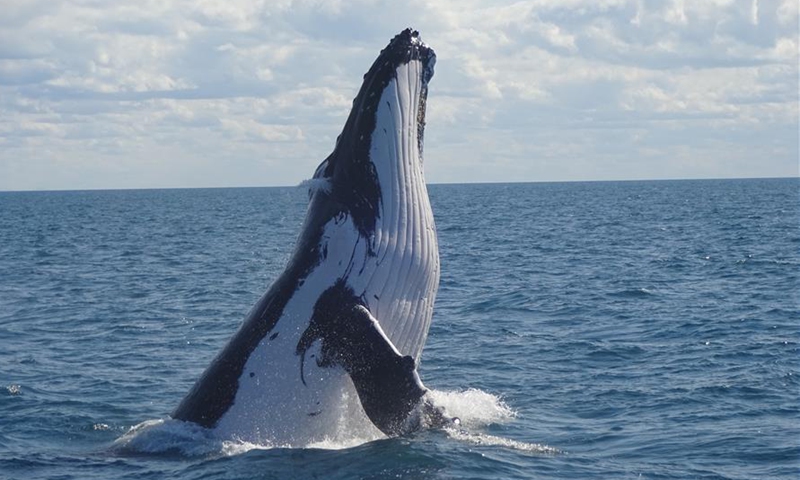Aussie research links whale "snot" to its health condition

File photo taken on Nov. 12, 2017 shows a humpback whale in Jervis Bay, New South Wales, Australia. For a recently published research project, scientists from Australia's University of New South Wales (UNSW) collected and analyzed samples of whale "snot" from their blow, which is similar to mucus from a human nose. They found that just like in humans, the microbial diversity and richness in whales' airways was linked to the host's overall health condition. (Xinhua/Bai Xuefei)

File photo taken on Nov. 12, 2017 shows a humpback whale in Jervis Bay, New South Wales, Australia. For a recently published research project, scientists from Australia's University of New South Wales (UNSW) collected and analyzed samples of whale "snot" from their blow, which is similar to mucus from a human nose. They found that just like in humans, the microbial diversity and richness in whales' airways was linked to the host's overall health condition. (Xinhua/Bai Xuefei)

File photo taken on Nov. 12, 2017 shows a humpback whale in Jervis Bay, New South Wales, Australia. For a recently published research project, scientists from Australia's University of New South Wales (UNSW) collected and analyzed samples of whale "snot" from their blow, which is similar to mucus from a human nose. They found that just like in humans, the microbial diversity and richness in whales' airways was linked to the host's overall health condition. (Xinhua/Bai Xuefei)

File photo taken on Nov. 12, 2017 shows a humpback whale in Jervis Bay, New South Wales, Australia. For a recently published research project, scientists from Australia's University of New South Wales (UNSW) collected and analyzed samples of whale "snot" from their blow, which is similar to mucus from a human nose. They found that just like in humans, the microbial diversity and richness in whales' airways was linked to the host's overall health condition. (Xinhua/Bai Xuefei)